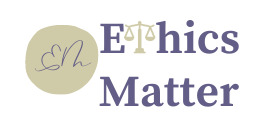Can an aggrieved person affected by the recommendations of the Internal Committee (IC) file an appeal if he/she isn’t satisfied with the recommendations?
Yes, Section 18 (1) of The Sexual Harassment of Women at Workplace (Prevention, Prohibition and Redressal) Act, 2013 (the Act) read with Rule 11 of The Sexual Harassment of Women at Workplace (Prevention, Prohibition, and Redressal) Rules, 2013 allows them to do so.
“Section 18. (1) Any person aggrieved from the recommendations made under sub-section (2) of section 13 or under clause (i) or clause (ii) of sub-section (3) of section 13 or sub-section (1) or sub-section (2) of section 14 or section 17 or non-implementation of such recommendations may prefer an appeal to the court or tribunal in accordance with the provisions of the service rules applicable to the said person or where no such service rules exist then, without prejudice to provisions contained in any other law for the time being in force, the person aggrieved may prefer an appeal in such manner as may be prescribed.”
“Rule 11. Appeal Subject to the provisions of section 18, any person aggrieved from the recommendations made under sub-section (2) of section 13 or under clause (i) or clause (ii) of sub-section (3) of section 13 or sub-section (1) or sub-section (2) of section 14 or section 17 or non-implementation of such recommendation may prefer an appeal to the appellate authority notified under clause(a) of section 2 of the Industrial Employment (Standing Orders) Act, 1946 (20 of 1946)”
What is the appropriate forum to file an appeal under POSH?
If an establishment or organization is governed by The Central Civil Services(Classification, Control and Appeal) Rules, 1965 and if the IC has not recommended any action against the employee against whom the allegation have been made, the Disciplinary Authority shall supply a copy of the Report of the IC to the complainant and shall consider her representation, if any submitted, before coming to a final conclusion and the Disciplinary Authority shall consider this representation as an appeal under Section 18 (1) of the Act. (As per DoPT OM dated August 2, 2016)
If the aggrieved person is governed by The Central Civil Services(Classification, Control and Appeal) Rules, 1965 and is not satisfied with the recommendations of the IC, then his/her representation shall be filed with the Disciplinary Authority. If the aggrieved is not satisfied with the Disciplinary Authority’s decision, he/she can file an appeal with the State or Central Administrative Tribunal whoever has the jurisdiction in that matter.
If the aggrieved person is NOT governed by The Central Civil Services(Classification, Control and Appeal) Rules, 1965 then clause(a) of Section 2 of The Industrial Employment (Standing Orders) Act, 1946 comes into picture.
“2. (a) “appellate authority” means an authority appointed by the appropriate Government by notification in the Official Gazette to exercise in such area as may be specified in the notification the functions of an appellate authority under this Act”
Section 2 (b) of The Industrial Employment (Standing Orders) Act, 1946 reads thus-
“appropriate Government” means in respect of industrial establishments under the control of the Central Government or a [Railway Administration] or in a major port, mine or oil-field, the Central Government, and in all other cases, the State Government:
[Provided that where any question arises as to whether any industrial establishment is under the control of the Central Government, that Government may, either on a reference made to it by the employer or the workman or a trade union or other representative body of the workmen, or on its own motion and after giving the parties an opportunity of being heard, decide the question and such decision shall be final and binding on the parties]
Usually, in such cases, the appellate authority is the industrial tribunal or the labour court.
What can be challenged in an appeal in a POSH case?
It was observed in Pradip Mandal vs Union Of India & Ors on 9 June, 2016 that an appeal can be filed against the recommendations of the IC and if such an appeal is successful, it will render the order of punishment nugatory. However, directly challenging the punishment order without challenging the IC report/recommendations is not an option. Because, once the petitioner has challenged the consequence and not the root, it is no longer permissible for the petitioner to change track and attack the root upon his/her belated realization that without a challenge to the basis for the order of punishment, the extent of interference with the order of punishment would be rather restricted.
Apart from that, the aggrieved can also file an appeal against the irregularity or illegality in the procedure followed during the proceedings, IC constitution(if it was biased or there was a conflict of interest), competency of IC members and breach of confidentiality.
Limitation period-
An appeal under the POSH Act shall be preferred within a period of ninety days of the receipt of recommendations.

